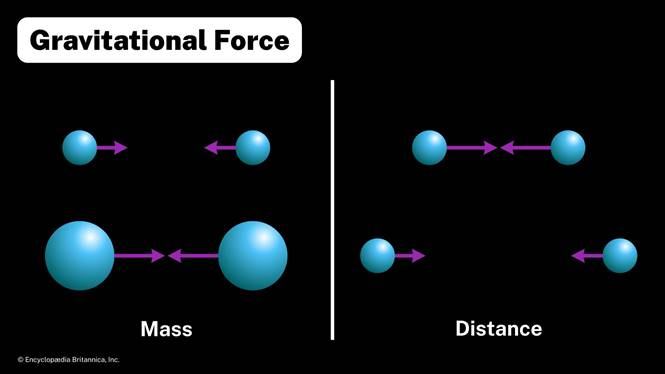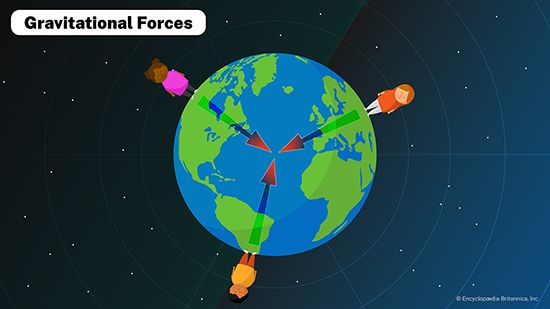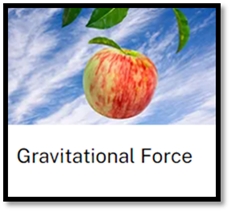Gravitational
Force
Learning
Objectives
By the end of this lesson, you will be able to
understand the concept of gravity as a force that acts between objects, even
when they are not in direct contact. You will learn about the factors that
influence gravity, including mass and distance. Additionally, you will learn
that Earth's gravity pulls objects downward toward its center.

When
you jump rope, gravity is the force that pulls you back to the ground.
©
amorn/stock.adobe.com
Lesson
Summary
This lesson introduces you to the idea that gravity is a force that can act between objects even if they aren't touching one
another. Through video, images, and text, you will learn that gravity depends
on mass and distance and that Earth's gravity pulls objects downward toward the
center of Earth.

Mass
and distance affect gravitational force.
Encyclopędia Britannica, Inc.
Key Concepts
1.
Gravity is a force that can act between objects even if they aren't
touching one another.
2.
Earth's gravity pulls objects downward toward the center of
Earth.

Gravity
makes it possible for these girls to juggle.
©
HOSHANG HASHIMI/AFP via Getty Images
Background
Gravity is an invisible force that acts on all
objects. The force of Earth's gravity is what holds us, and all the objects
around us, on Earth's surface. When a ball is thrown into the air, it falls
back to the ground because of Earth's gravity. Earth's very large mass (mass is
the measure of the amount of matter in an object) pulls on the small mass of
the ball, pulling the ball toward Earth's center. The magnitude (or size) of
the force of gravity between two objects, such as Earth and the ball, is
affected by mass and distance. The more mass objects have, the greater the
force of gravity between them. The shorter the distance between two objects, the
greater the force of gravity between them. Keep in mind that there is a
difference between mass and weight. Mass is the amount of matter in an object,
while weight measures the force of gravity on that object.
Studying gravity exposes you to a scientific
law that successfully explains many phenomena in the natural world. The law of
gravity explains how objects affect one another, how planets and moons orbit,
and how the force of gravity is responsible for weight. This topic also helps you
contemplate aspects of the universe beyond Earth: outer space, the Moon, the
planets, and the Sun.

Earth's
strong gravitational force pulls everything toward the center of the planet.
Encyclopędia
Britannica, Inc.
Expedition
Learn
Click on the image to begin your unit.
